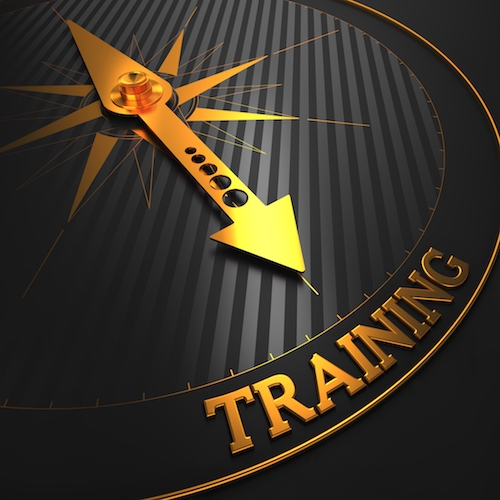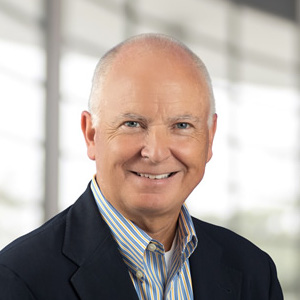 You’ve passed the patent bar exam. Now what? We have heard that question too many times to count over the years as we have collectively spent over 50 years teaching patent bar review courses. With so many firms cutting back on, or eliminating training, and experience being necessary to get a job, we decided to create this Patent Practitioner Training 101, to bridge the gap for those new to the industry, and to offer a training solution to those firms in need of a ready-made program.
You’ve passed the patent bar exam. Now what? We have heard that question too many times to count over the years as we have collectively spent over 50 years teaching patent bar review courses. With so many firms cutting back on, or eliminating training, and experience being necessary to get a job, we decided to create this Patent Practitioner Training 101, to bridge the gap for those new to the industry, and to offer a training solution to those firms in need of a ready-made program.
As experience patent practitioners know, and those new to the industry soon realize, having a license to practice is just the beginning. There are numerous skills to be learned, from how to interact with clients, execute written agreements, prepare applications and respond to patent examiners. Knowing the rules is one thing, knowing how to do it in real life is quite another thing all together.
Patent Practitioner Training 101 will provide all the tools necessary for a new patent practitioner to hit the ground running. We address everything that a practitioner may need to do up to an appeal at the United States Patent and Trademark Office, including: obtaining clients, initial client intake, client agreements, handling money, opinion letters, patent searching, opinion letters, drafting patent applications, filing patent applications, responding to a restriction requirement, preliminary amendments, reporting office actions to a client, conducting examiner interviews, filing an amendment and response, and options for keeping a case alive after a final rejection.
At the end of this course students will have a strong grasp on the basics of day to day patent practice, and a catalogue of examples and templates to draw upon for a variety of the most common and likely occurrences in the life of a patent practitioner.
This course is designed for those who have already passed the patent bar exam in the U.S. and will assume a level of knowledge commensurate with having passed the patent bar exam. While exceptions may be made in certain cases, familiarity with U.S. patent law and rules of practices is a prerequisite.
Patent Practitioner Training 101 is ideal for those patent practitioners with less than two years of experience, or law students entering a clerkship or internship between their second and third year of law school. It can also be used by firms to train incoming associates, patent agents or technical advisors.
This Course Will Address
Things Every Practitioner Should Know: (1) How to write a patent application; (2) Malpractice Insurance; (3) Finding clients; (4) Networking: (5) Overflow Work; (6) Reading patent files; (7) Patent searching; (8) Client trust accounts and accepting a retainer; and (9) Client agreements.
Client Intake: (1) Initial communications with potential clients; (2) Confidentiality owed to potential clients; (3) Conflict checks; (4) Initial discussions about the invention and advice about patents; (5) Knowing your limitations (legal and technical); (6) Managing expectations; (7) Engagement letters.
Evaluating a Patent Search: (1) Reviewing lunch assignment #1 and comparing student results to a professional search result; (2) Pros/cons of using Google and Free Patents Online for patent searches; (3) How to work with a professional patent search firm; (4) Reviewing a professional patent search report; (5) Using Public PAIR to help formulate your opinion.
Writing a patentability opinion letter: (1) Defining the invention searched. (2) How detailed will you be? (3) What advise will you give? (4) Will you every say absolutely no? (5) Are there insights you can provide based on the search done? (6) Is the project now complete? (7) Quoting further work.
A Prelude to Writing the Application: (1) The representation agreement and terms of payment; (2) Importance of filing a provisional patent application in a first to file system; (3) Scheduling work and informing the client; (4) Working with the patent illustrator; (5) A prelude to patent claim drafting.
The law: 35 U.S.C. 101, 102, 103 and 112. Special emphasis will be placed on cases and concepts you will need to know when drafting and prosecuting patent applications.
Claim drafting: Claim drafting techniques for a variety of different types of claims including device claims, method claims, means plus function claims and systems claims.
Specification Drafting: (1) Defining the invention completely with alternatives and variations and with particular care to identify the improvements that will contribute to patentability; (2) Avoiding common mistakes that will unnecessarily limit the scope of protection.
Filing the patent application: (1) EFS Basics: (2) Application Data Sheet (ADS); (3) Declarations; (4) Making a priority claim; (5) Filing an Information Disclosure Statement (IDS); (6) Fixing common mistakes at the time of filing; (7) Filing a Preliminary Amendment; and (7) Responding to a Restriction.
Office Actions: (1) Reporting an Office Action to a client; (2) Responding to the First Action on the Merits; (3) Using an interview with an examiner prior to responding to the first Office Action; (4) Amendment Writing; and (5) Examiner Interviews (generally).
Everything that can happen during prosecution (and why): Continuations, Divisionals, CIP, RCE, CPA, Affidavits, Suspension of Action, Requests for Information, Abandonment/Revival, Advancing a case out of order, General Authorization, Deposit Account, Withdrawal, Power of Attorney, Ombudsman.
After Final Rejection: (1) After Final Practice; (2) Filing a Notice of Appeal; (3) Pre-Appeal Brief Review. Post Issuance: (1) Maintenance Fees; (2) Reexamination; (3) Reissue; (4) PTAB challenges; (5) Enforcement; and (6) Licensing.
Putting it All Together: A walk through several applications and file histories to reinforce lessons and continue to provide working examples that can be drawn upon post-course in day-to-day practice.
Live Course on Location
We will offer live courses at 700 12th Street NW, Suite 700, Washington, DC. This facility is conveniently located directly across the street from Metro Center, making it easily accessible by public transportation. Continental breakfast and afternoon refreshments will be provided each day. Students will provide their own lunch.
In our live on location courses we will cover 6 hours of material each day, with a Q&A period to end each day. There will be homework, and lunch assignments. Those familiar with the patent bar course John and Gene teach will already know the drill. This will be an immersion course where students will be busy in class from 8:30am to 5:30pm each day, and with homework on the first two nights.
- August 6-8, 2018 — Washington, DC — CLICK to REGISTER.
Distance Learning Live
We will also offer a LIVE distance course. These live, online courses are not pre-recorded. Either John, Gene, or both will be live via our interface to conduct the class and answer questions during the Q&A period.
Each distance course will meet for a total of 6 days (Tuesday, Wednesday & Thursday for two weeks), and will cover each of the same 18 segment hours covered in the live course. Rather than breaking the day down into a morning segment and afternoon segment, each day of the distance course will cover 3 hours of substantive instruction, which will be followed by a 30 minute Q&A period. There will, of course, be homework.
- June 19-28, 2018, from 4:00pm to 7:30pm EST — CLICK to REGISTER.
- August 21-30, 2018, from 4:00pm to 7:30pm EST — CLICK to REGISTER.
 Payment Option: PayPal offers a 6 month No Interest payment option. Please click the PayPal Credit image to learn more and apply. Once you have set up your PayPal account, and have gotten PayPal Credit approval, please email Renee a [email protected] and we will send you an invoice for the course of your choice via PayPal.
Payment Option: PayPal offers a 6 month No Interest payment option. Please click the PayPal Credit image to learn more and apply. Once you have set up your PayPal account, and have gotten PayPal Credit approval, please email Renee a [email protected] and we will send you an invoice for the course of your choice via PayPal.

![[IPWatchdog Logo]](https://ipwatchdog.com/wp-content/themes/IPWatchdog%20-%202023/assets/images/temp/logo-small@2x.png)


![[Advertisement]](https://ipwatchdog.com/wp-content/uploads/2024/04/Patent-Litigation-Masters-2024-sidebar-early-bird-ends-Apr-21-last-chance-700x500-1.jpg)

![[Advertisement]](https://ipwatchdog.com/wp-content/uploads/2021/12/WEBINAR-336-x-280-px.png)
![[Advertisement]](https://ipwatchdog.com/wp-content/uploads/2021/12/2021-Patent-Practice-on-Demand-recorded-Feb-2021-336-x-280.jpg)
![[Advertisement]](https://ipwatchdog.com/wp-content/uploads/2021/12/Ad-4-The-Invent-Patent-System™.png)







Join the Discussion
8 comments so far.
Anon
April 29, 2018 02:47 pmMr. Morgan.
I call you out for the B$ of your “answered many times.”
I recently asked you a direct question and there was NO direct answer – only your mealy and rather feeble “professional slander” angle.
That you now what to make this appear that the decision to stop prep and pros is only “smart” when you can make enough money NOT doing prep and pros only backfires and all the more points out that you have NO desire to be a protector of innovators.
I will bet that you even fail to realize that you slammed yourself in your hurry to make what you consider to be a smart reply to me.
But please, let’s tussle with our wits and words. I will thoroughly enjoy dismantling you some more (and directly so). Beyond “cheerleading” you have shown precious little critical thinking skills, and your snide comments from the sidelines will always suffer BECAUSE they are only snide comments from the sidelines, You have repeatedly shown a LACK of actually engaging on the merits.
When (or if) you muster that ability, you may see less “sting” for you in my posts, but until then, you deserve no better (and that’s being generous).
Paul Morgan
April 29, 2018 01:13 pmAnon, asked and answered many times. Obviously you are not making enough to comfortably retire from what prep and prosecution can be billed at these days or you would not be a full time non-substantive blog commentator.
Anon
April 29, 2018 10:25 amMr. Morgan does raise some genuinely good points at his post at 4.
Still, I am left to wonder how it is that even in the face of some these points, that Mr. Morgan pretends to be a “champion of the innovator” having decided to relinquish his USPTO registration number, and thereby only practice in areas NOT obtaining patent protection for clients.
I ask, not so much to badger Mr. Morgan, but I ask as my previous direct (and simple) question was entirely avoided by Mr. Morgan.
Until Mr. Morgan provides a cogent reasoning, his other (and typically more profuse) postings as “head-cheerleader” of the IPR regime provide the “foundation” from which and the lens through which any posting by Mr. Morgan should be viewed.
Lost In Norway
April 28, 2018 10:02 amI am glad to see that you are getting this course up running. You and John (and Ray!) were excellent during the live patent bar prep course that I went to. I know that you’ll really put those students to work and make them better. I am jealous. I really wish I could be one of them. Your program sounds incredible.
I hope that it is a success and that I get a chance to catch the next one that you are running live. 🙂
Paul Morgan
April 28, 2018 09:56 amThis course sound like a good idea Gene. I agree that most law firm partners are unwilling to sacrifice much billing time for associates training, especially with no assurance the associates will stick around.
I hope that that points that will be strongly stressed in such a course will include:
1.The great importance and value of examiner interviews.
2. The great importance of treating examiners with respect. Word gets around among examiners about patent agents and attorneys who do not. Especially if they make threats or even try to get examiners removed from applications they cannot get allowed by threats. Some attorneys do not even bother to ask examiners what kind of claim changes might change the examiner’s rejection.
3. The mutual time and financial waste of filing foreign-origin applications “as is” -with no effort to put the application, especially the claims, in proper condition for U.S. prosecution.
4. Delaying offering any serious claim amendments until after the client has had to pay for an RCE.
5. Regarding allowance of an application as successful even if the prior art search has so clearly missed the boat that the patent will be mincemeat in any IPR.
6. Filing ONLY claims in an application so broad they are begging for a 101 rejection in the application or any resultant patent. Especially, only broadly claiming a desired result with nothing about how to achieve that result in any claims or, worse, not even in the specification.
7. Filing only means-function claims, including “adapted to” claims that will get a 112(f) treatment.
I am sure there are examines and others who can provide many additional suggestions for you.
Anon
April 27, 2018 07:33 pmKudos for putting forth the level of effort that such an encompassing gamut must take.
Fading into the recent past were a few discussions that remind me of a close but tangent point:
The practice of law by a patent agent (perhaps solo) and the intersection – or lack thereof with a state bar (and that bar’s disciplinary process) or control of the agent under a number of state laws dealing with the (more general) practice of law.
In shorter terms: the Federal bar that oversees patent agents may not be acting in near as much of a similar capacity to a fully state-barred attorney.
What kicks in this thought is the excellent scope that includes matters such as contracts and general legal ethics that attorneys will be familiar with (in at least a book sense), that those who pass the patent bar and act in the capacity of providing legal services as an agent (again, perhaps solo) would lack even the book sense.
Perhaps you cover this in some sense in your own patent bar courses (I must admit to not having used your services personally), but seeing the topics here serve to reinforce that even agents practicing law in their properly proscribed limits may (will) need additional non-patent-bar legal knowledge.
Kudos again, and let me add that it is this type of care and service that brings credence to the overall blog and your wide coverage of intellectual franchise matters.
Gene Quinn
April 27, 2018 03:22 pmThanks Luis. I appreciate the endorsement. Sorry I missed you this year in NY, but I’m sure our paths will cross soon enough. Stay well!
Luis Figarella
April 27, 2018 02:45 pmCongrats to two special gentlemen. Having known both for over a decade, and having benefited from their insight at the PLI, I think anyone taking this course will be happy they did.